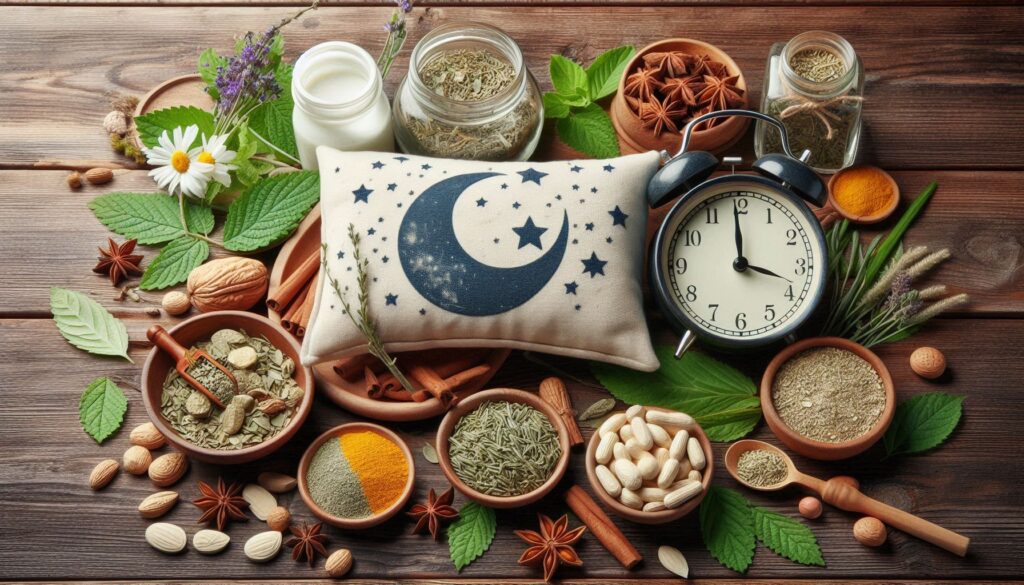In today’s fast-paced world, getting quality sleep can be a challenge. Many people turn to prescription medications, but natural remedies offer a gentler, non-habit-forming approach to improving sleep quality. Herbs have been used for centuries to promote relaxation, support sleep cycles, and enhance overall well-being. In this blog, we’ll explore the best herbs for better sleep, their active compounds, and how to incorporate them into your nighttime routine.
Valerian Root: The Natural Sedative
Valerian root is known for its sedative properties, which help calm the nervous system and promote deep sleep. Its active compounds, including valerenic acid, work by increasing the availability of gamma-aminobutyric acid (GABA), a neurotransmitter that calms the brain and prepares the body for rest.
How to Use: Drink valerian root tea about 30 minutes before bedtime or take it in capsule or tincture form.
Research Spotlight: A study published in the American Journal of Medicine found that valerian root significantly improved sleep quality and reduced the time it takes to fall asleep.
Passionflower: Quieting a Busy Mind
Passionflower, commonly used to reduce anxiety, also plays a role in enhancing sleep quality. By boosting GABA levels in the brain, passionflower reduces nervous system activity, helping to quiet racing thoughts and prepare the mind for restful sleep.
How to Use: Enjoy a cup of passionflower tea in the evening or take it in tincture or capsule form.
Research Spotlight: A study in Phytotherapy Research found that passionflower extract improved sleep patterns and increased overall sleep duration in individuals with mild insomnia.
Chamomile: The Gentle Sleep Aid
Chamomile is a well-known herb for relaxation and stress relief. It contains apigenin, an antioxidant that binds to certain receptors in the brain, helping to reduce anxiety and promote sleep.
How to Use: Brew a warm cup of chamomile tea before bedtime. Chamomile can also be taken as a supplement for stronger effects.
Research Spotlight: A study in BMC Complementary and Alternative Medicine found that chamomile extract improved sleep quality in individuals suffering from chronic insomnia.
Lavender: Aromatherapy for Restful Nights
Lavender’s calming aroma is widely used in aromatherapy to promote relaxation and improve sleep. Its primary compound, linalool, has sedative effects that help ease stress and anxiety, making it easier to fall asleep and stay asleep.
How to Use: Diffuse lavender essential oil in your bedroom, apply diluted oil to pulse points, or add a few drops to your pillow.
Research Spotlight: A study published in the Journal of Alternative and Complementary Medicine found that lavender aromatherapy significantly improved sleep quality and reduced insomnia symptoms.
Lemon Balm: Easing Restlessness
Lemon balm, a member of the mint family, is traditionally used to relieve stress and promote relaxation. Its compounds, including rosmarinic acid, have mild sedative effects that help reduce restlessness and support a calm mind before sleep.
How to Use: Sip on lemon balm tea in the evening or take it as a supplement or tincture.
Research Spotlight: A study in the Journal of Ethnopharmacology showed that lemon balm improved sleep quality and reduced symptoms of insomnia in participants.
Integrating Sleep-Enhancing Herbs into Your Routine
Each of these herbs offers unique benefits, and combining them can create a powerful natural sleep aid. Here’s how to incorporate them into your nightly routine:
- Create a Soothing Tea Blend: Mix chamomile, passionflower, and lemon balm for a relaxing bedtime tea.
- Use Aromatherapy: Diffuse lavender essential oil to create a calming environment before sleep.
- Take a Supplement Blend: Look for a capsule blend that includes valerian root, passionflower, and lemon balm for deeper sleep support.
- Relax with a Herbal Bath: Add dried lavender and chamomile to a warm bath to calm your senses and prepare your body for rest.
Final Thoughts
Herbal remedies provide a safe and natural alternative for improving sleep quality. As with any supplement, start with small doses and observe how your body responds. By incorporating these sleep-enhancing herbs into your nighttime routine, you can create a holistic approach to better sleep and wake up feeling refreshed and rejuvenated.


